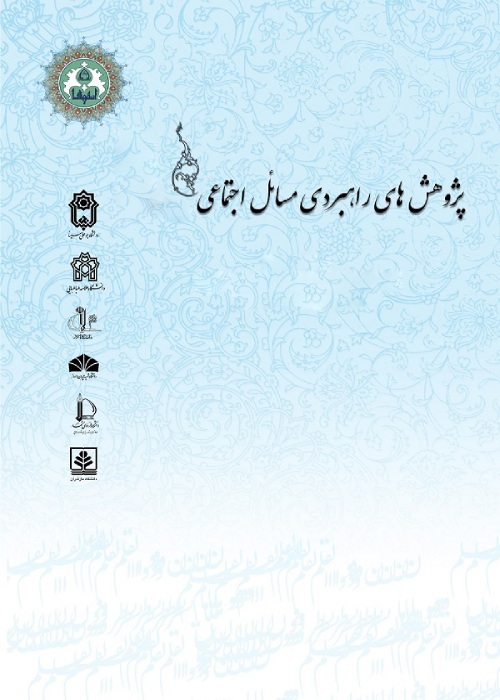Social Trauma Field and Trauma Habitus with an Emphasis on Bourdieu’s Theory
The present study aimed to explore the concept of social trauma and its implications for habit formation from a sociological perspective with a particular emphasis on Bourdieu’s theories of field, habitus, and Hysteresis. Bourdieu, a prominent sociologist, has provided experimental explanations of various social fields and their deconstructions, which can be understood as traumatic situations from a sociological standpoint. According to Bourdieu, in conditions of individual and social stability, change occurs gradually and predictably, likening each person to a "fish in water." This suggests that habit and field are in harmony with each other, forming what Bourdieu termed habitus. The habitus, or embodied dispositions, is in a constant state of flux in response to new experiences. However, in critical moments or when the structure of the field undergoes significant changes, the habitus may struggle to adapt to these fundamental and sometimes catastrophic shifts, leading to a state of disorganization. This disorganization reflects the disparity between the new situations arising from changes in the field and the agents within the field, who must comprehend and navigate the new landscape. This process of disintegration as described by Bourdieu is closely related to the concept of social trauma. The term "trauma," derived from the Greek word "traumat," meaning to wound, is often used interchangeably with post-traumatic stress disorder. In essence, the new situations that emerge within the field can become traumatic, leaving a profound gap in both the field and habitus.
This study employed a qualitative approach grounded in theory. Data collection and analysis were conducted by using purposeful sampling and the technique of semi-structured interview with the citizens of Tabriz in the year of 1402. The targeted sampling method utilized in this research aimed at achieving maximum diversity with the inclusion criteria encompassing a range of factors, such as gender, age, residential area (prosperous, marginal, middle-class), marital status, education, occupation, and income.
The findings revealed that the field of social trauma exhibited an inescapable hysteresis of economic capital, devaluation of cultural capital, and a crisis in social capital. These factors contributed to the formation of habitus characterized by hopelessness, fear of the future, inner turmoil, and a sense of inadequacy. These elements in a dialectical interplay exacerbated the distortions within the field and habituation, rendering the situation more complex and precarious.Ultimately, the research findings indicated that the activists were situated within a field of social trauma and disintegration marked by fundamental crises in the realms of economy, culture, and society. Accessing economic resources had become nearly unattainable, while cultural capital had lost its influential role in enhancing individuals' status. Consequently, people had become isolated, their social connections had dwindled, and the activists had experienced alienation. This had resulted in a loss of social trust and diminished social participation. Therefore, life in this traumatic field, contrary to Bourdieu's perspective, which posits disturbances as temporary (though historically accurate), had engendered enduring traumatic habits, such as despair, a sense of helplessness, and emotional distress. The dialectical relationship between the traumatic field and traumatic habits had contributed to the deterioration of the social trauma field and, in accordance with Foucault's views, had led to the erosion of humanity and the human experience.
- حق عضویت دریافتی صرف حمایت از نشریات عضو و نگهداری، تکمیل و توسعه مگیران میشود.
- پرداخت حق اشتراک و دانلود مقالات اجازه بازنشر آن در سایر رسانههای چاپی و دیجیتال را به کاربر نمیدهد.





